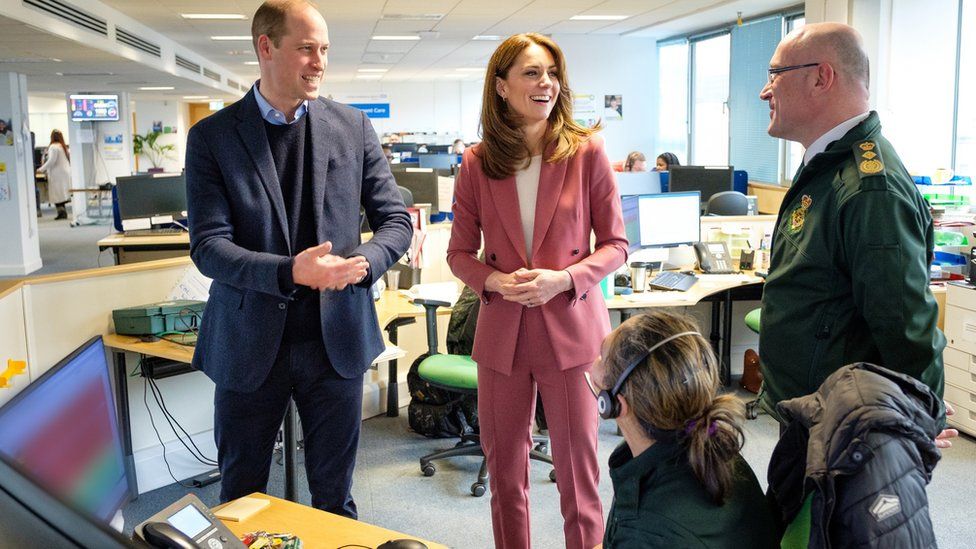Coronavirus: William and Kate urge nation to look after their mental health
- Published

The Duke and Duchess of Cambridge have given their support to a campaign to protect people's mental health during the coronavirus outbreak.
Public Health England (PHE) has launched new advice on wellbeing.
The guidance encourages people to keep in contact with family and friends by phone or social media and stick to a regular routine and sleeping pattern.
Prince William and Catherine said: "The last few weeks have been anxious and unsettling for everyone."
They added: "We have to take time to support each other and find ways to look after our mental health."
"By pulling together and taking simple steps each day, we can all be better prepared for the times ahead."
The Cambridges have taken a close interest in the issue and in 2016 launched the Heads Together campaign, along with the Duke of Sussex, aimed at ending the stigma around mental health.
Mental health charities are also being given an extra £5m in funding by the government to help expand their services.
- A SIMPLE GUIDE: How do I protect myself?
- AVOIDING CONTACT: The rules on self-isolation and exercise
- LOOK-UP TOOL: Check cases in your area
- MAPS AND CHARTS: Visual guide to the outbreak
- STRESS: How to look after your mental health
The PHE guidance also suggests taking up a new hobby or setting goals to combat anxiety and low mood while staying at home and following advice on social distancing or self-isolation.
There is also support for those already living with a serious mental health problem, including how to access help from professionals.
PHE said it is issuing guidance to trusts on prioritisation of services and how to maximise use of digital and virtual channels to keep delivering support to patients.
It said NHS mental health providers are also establishing 24/7 helplines.
Coping with coronavirus anxiety
Mental Health Minister Nadine Dorries, who was herself diagnosed with Covid-19 earlier this month, said when she discovered she had the virus she "felt anxious and scared".
"For those who already suffer with anxiety or other mental health issues this may present new and difficult challenges," she said.
Mind is one of the charities preparing to adapt and increase their services.
They are reaching out to vulnerable groups including older adults and people with underlying health conditions, and also anyone experiencing unstable employment and housing conditions.
Paul Farmer, chief executive of Mind, said: "Whether we have an existing mental health problem or not, we are all going to need extra help to deal with the consequences of this unprecedented set of circumstances."
"Reaching out to friends and family is critical, as well as paying attention to the impact our physical health can have on our mental health - from diet and exercise to getting enough natural light and a little fresh air," he said.
- Published16 March 2020
- Published23 March 2020
- Published8 October 2019